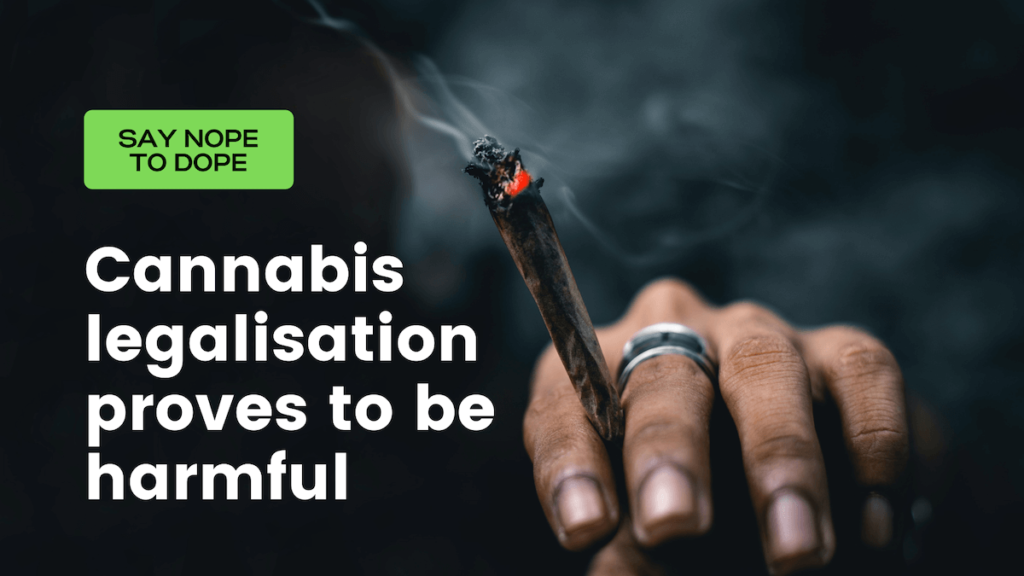We said that Colorado was like the “canary in the coal mine”, with its legalisation of recreational cannabis. We’re thankful for the chance to watch their dangerous experiment before doing it in New Zealand. And the evidence continues to reveal that kiwis made a great decision last year by voting NO to dope.
Media Release from Smart Approaches to Marijuana (SAM)
(Alexandria, VA) – Today, a new Colorado report compiled by the Rocky Mountain High-Intensity Drug Trafficking Area finds marijuana-positive traffic fatalities, hospitalizations, illegal market activity, and opioid-related deaths continue to rise following marijuana commercialization.
According to the report, marijuana-impaired driving is continuing to have a catastrophic impact on Colorado. Since legalization, traffic deaths in which drivers tested positive for marijuana increased 138 percent while all Colorado traffic deaths increased 29 percent. In 2020, 131 individuals were fatally injured in crashes where the driver tested positive for marijuana.
The percentage of all Colorado traffic deaths involving drivers who tested positive for marijuana increased from 11 percent in 2013 to 20 percent in 2020.
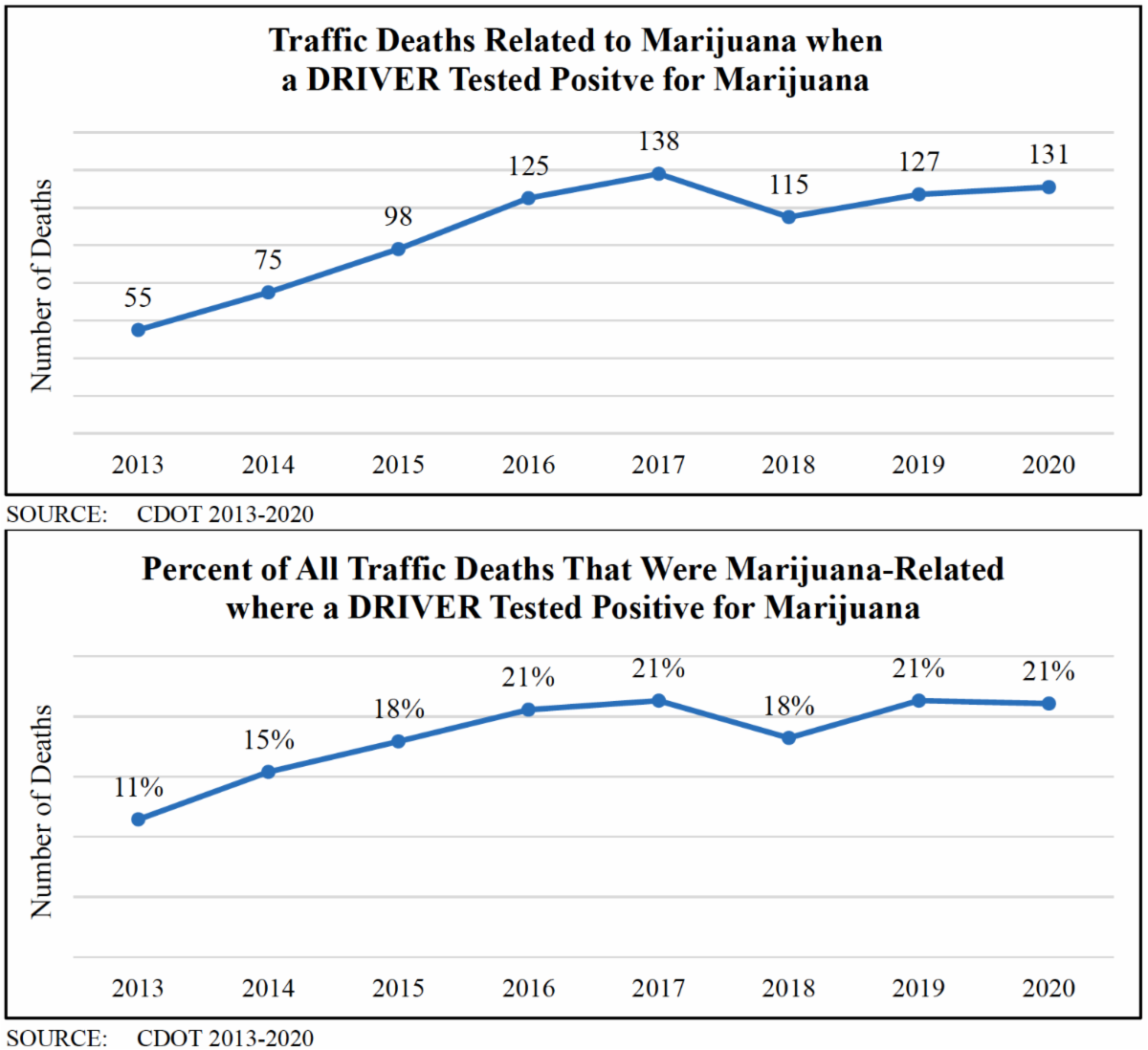
Calls to the poison control center due to marijuana exposures continue to rise in Colorado, with 318 total calls in 2020 versus 125 in 2013, a 154 percent increase. Of these calls, 69 percent were for youths aged 0-18. Such calls totaled 221 in 2020, representing a 240 percent increase since 2013.
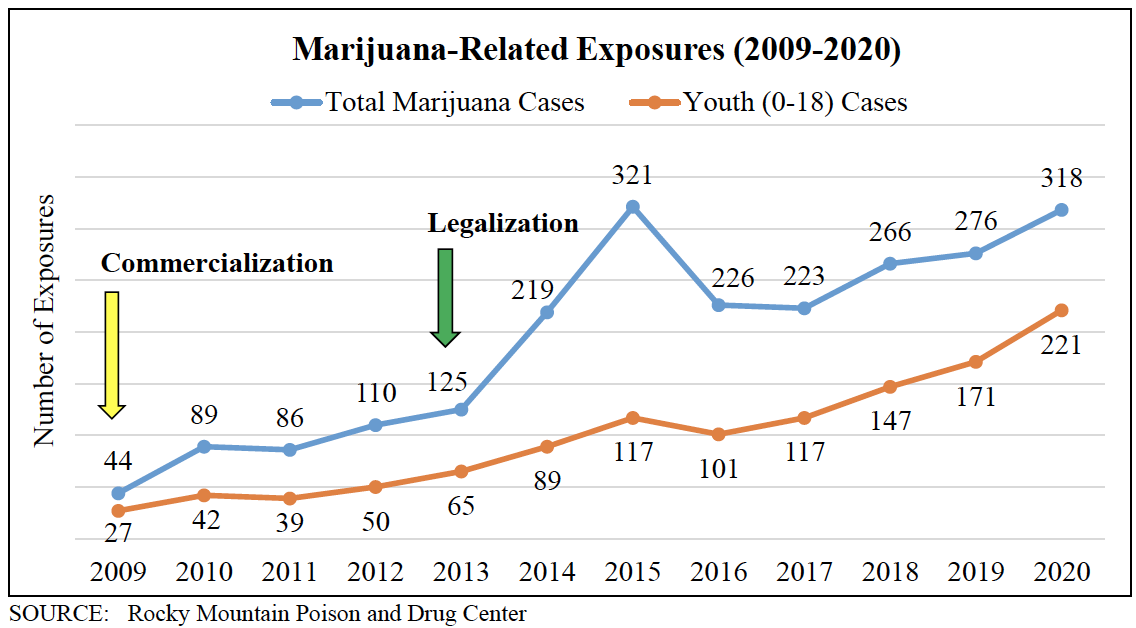
Of suicides among Colorado youth aged 10-19, marijuana was present in 51 percent of toxicology reports.
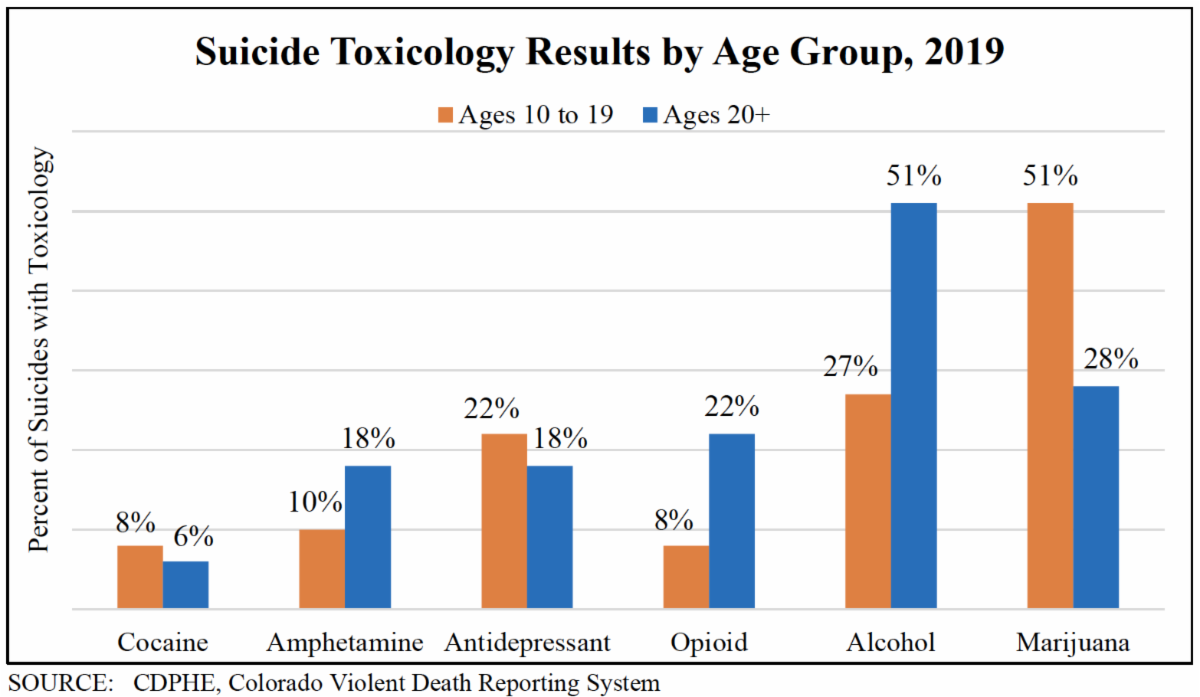
2020 was the worst year on record for opioid deaths nationwide, and Colorado saw the largest jump in such deaths in more than 20 years, with 956 opioid-related overdose deaths, a 56 percent increase over 2019, and a 137 percent increase since 2013.
While marijuana legalization proponents argue such a change in drug policy can help curb the opioid epidemic, this has not been shown to be the case in Colorado. Apart from a small decline between 2017 and 2018, opioid overdose deaths have increased year over year in Colorado since 2012.
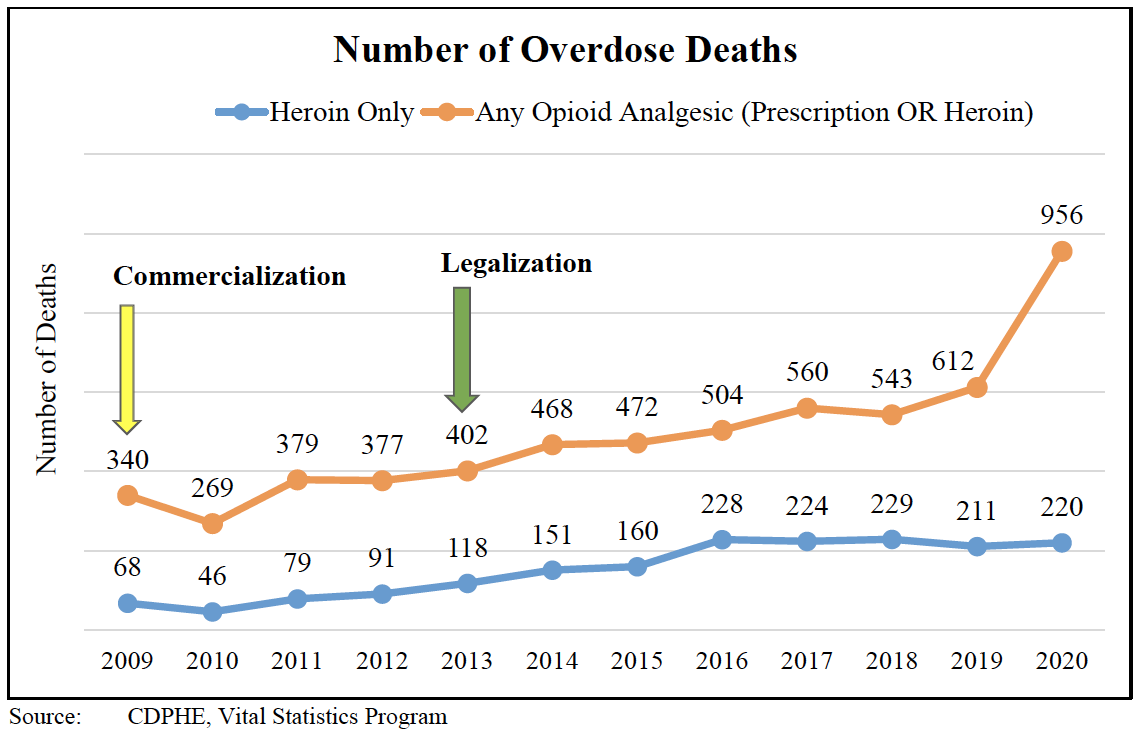
The illicit marijuana market continues to be unphased six years after legalization was instituted. In 2020, the Colorado Drug Task Force conducted 294 investigations, made 168 felony arrests, and seized just under six tons of illicit marijuana en route to 21 different states.
The report also concludes that alcohol consumption in Colorado, which marijuana legalization proponents argued would decrease with marijuana being legalized, has in fact increased 10 percent since 2013.
The Rocky Mountain High Intensity Drug Trafficking Area (RMHIDTA) program has published annual reports every year since 2013 tracking the impact of legalizing recreational marijuana in Colorado. The purpose is to provide data and information so that policymakers and citizens can make informed decisions on the issue of marijuana legalization.

